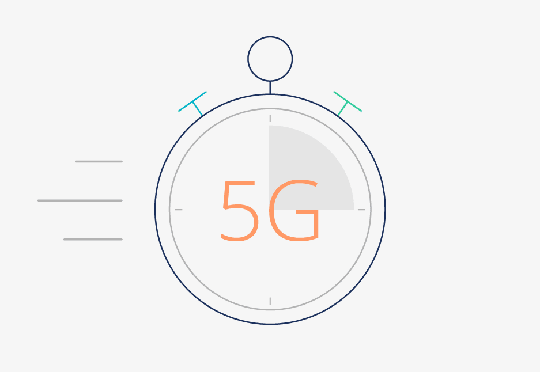

Is 5G the Key to the Next Tech Revolution?
Since the first mobile generation was released in 1982, a new generation of mobile has followed approximately every decade, the most recent being 4G in 2012. As soon as the dust settled on the release of 4G however, talk became focussed on the next generation. Only 3 years later, 5G is among the hottest topics in the industry. With Telstra recently completing successful trials in Australia, expectations for the capabilities of 5G are high. Set to become available to the public in 2020, the potential of 5G is drawing closer – and it is not just telcos who are excited.
The Possibilities
The 5G upgrade will be achieved in one of two ways: either as a complete redesign of the radio spectrum that previous generations have built on, or as a more simple extension of the current 4G technology. 5G is aiming to improve not just speed, but capacity and latency as well – allowing users to experience browsing with less delay and unlimited connections. This crucial difference will ensure that 5G speeds are not just a slight upgrade, but light years ahead of the current technology.
Recent testing by Telstra shows 5G is capable of speeds greater than 20 Gbps, as well as a latency that is up to half of that of 4G networks. Dr Magnus Ewerbring, Ericsson’s chief technology officer in Asia Pacific and a partner of Telstra, said of the tests: “these early 5G trials will help drive the global standards that will ultimately cover 5G.” Hypothetically, these speeds would be fast enough to download 600 movies a minute, or the entire 6 seasons of Game of Thrones in less than 20 seconds.
These tests seemingly indicate that 5G will bring vastly improved speed, latency and capacity, as well as assisting the growth of the Internet of Things from present day figures of 6.4 billion connected devices, to a projected 21 billion by 2020. Use of the IoT is on the rise, as a number of companies have begun to experiment with its potential. Coca Cola for example, currently use microchips to track their bottles, and Amazon have introduced ‘Dash Buttons’ – which allow users to restock their favourite household products, such as Andrex and Ariel, at the touch of a button. The true potential however, is yet to be tapped. Ultimately, 5G could revolutionise the industry, bringing not only fast and highly accessible cellular browsing, but also bringing the full functionality of the IoT into our everyday lives. Ultimately, 5G will aid the creation of a digital society and economy that could connect limitless numbers of devices through one network.
For telcos, 5G represents a future revenue channel with abundant possibilities. Recently, smartphone users have been taking advantage of improved wifi capabilities, which has decreased data usage and resulted in some lost revenue for telcos. 5G represents a way to interest smartphone users in cellular browsing once more, and hence replace this lost revenue. However, the rise of the Internet of Things could result in a massively compressed telco infrastructure, as all industry sectors join together. For telcos and other companies in the technology sector, this makes staying ahead of the curve more important than ever… Cue a host of organisations throwing their hat into the ring.
So what’s the downside?
It is not just the telecoms industry who are excited by 5G, but various others who could capitalise from it as well. The result is numerous industries wanting a slice of the action, and so 5G must now fulfil multiple agendas and requirements. Media companies will want prioritised bandwidth, so that their movies can be streamed in higher resolutions. Gaming companies will expect low latency for optimum player experience. Technology companies such as Apple and Samsung are perhaps the biggest investors: Smartphones are an obvious motive, but they are also keen to involve themselves in the IoT, which is tipped to become their next big source of revenue. The development of 5G will therefore be a product of the involvement of various industries. It could be a case of too many cooks spoil the broth, or it could in fact signify the beginning of the next generation of telecommunications technology – a compressed infrastructure that joins together media companies, technology firms, transport organisations and more.
5G therefore represents the chance for telcos, governments and technology companies to unify and create new world standards of living in a digital age. Exciting advancements such as self-driving cars, remote-controlled surgery and self-ordering fridges are all possible with its release. It represents a time of growth for many companies: telecoms have the opportunity to reverse their declining revenue and rejuvenate the industry, whilst technology companies have the chance to broaden their field. A technology revolution is ahead, and the potential is exciting for companies from all industries.
However, as the infrastructure compresses, telecommunications companies invest in the IoT and technology companies begin to offer their own communications options (such as WhatsApp and Facebook Messenger), companies must adapt to the shifting market to stay afloat. The fate of companies such as Dell and HP, who struggled to keep up with advances in IT after the rise of cloud computing, demonstrates the necessity for companies to keep up with the technological revolution that 5G represents. Telcos, technology firms, media companies, automotive organisations and many more, all have the opportunity to profit from 5G and the IoT, as long as they are able to convert to a concentrated and interconnected digital economy. The race to 5G is officially on, and no one wants to be last.

